🇹🇭 #DeepDive: The Mysterious Death of King Ananda
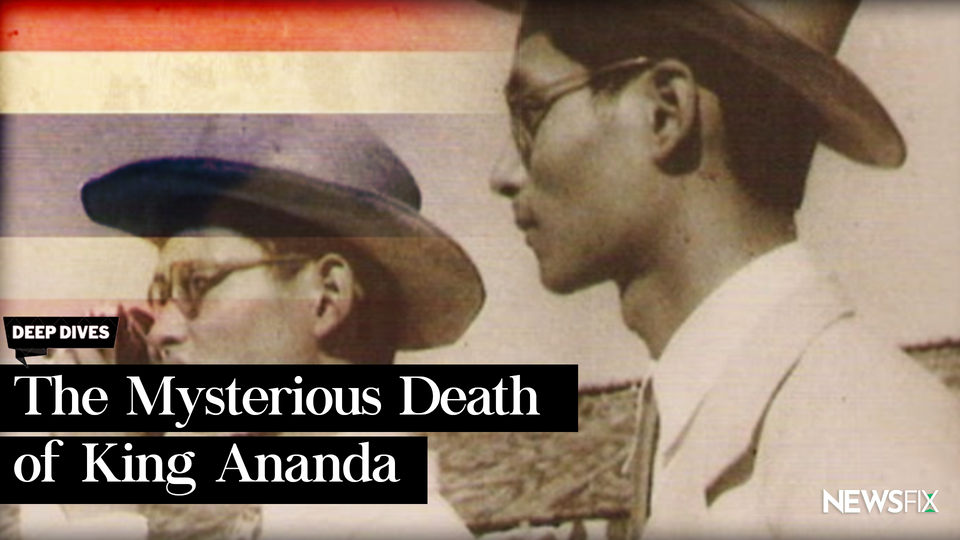
Morning all,
Next week marks the fifth anniversary of Thai King Bhumibol Adulyadej's death.
The revered king reigned for 70 years, taking the throne suddenly following the mysterious death of his brother, King Ananda Mahidol.
Dying from a single gunshot wound in the palace, King Ananda's death was described as "one of the most baffling mysteries of the century," and many questions remain unanswered today.
Until Monday,
Your Fixers
⏳
BEFORE WE BEGIN...
Reporting on Thailand's royal family is heavily restricted by the 'lese majeste' - or 'injured majesty' - laws.
It means anyone who "defames, insults, or threatens" the king, queen or heir apparent could be punished with a jail term of up to 15 years. In January of this year, a woman was given a chilling 43-year sentence - the toughest ever - for sharing critical Youtube clips of the monarchy.
Even media organisations - especially those based in Thailand - are limited on what they can report.
For example, in 2015 a New York Times printer in Thailand refused to print a paper containing an article about the future of the monarchy.

HOW ABOUT SOME HISTORY?
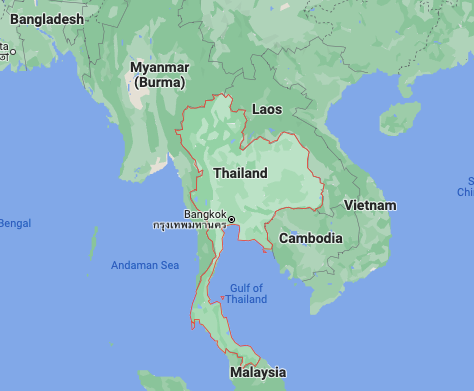
Thailand - which used to be known as "Siam" - had an absolute monarchy for hundreds of years, with royalty typically being viewed as a sacred institution.
*Sidenote: The term 'Siamese twins' comes from a pair of conjoined twins who were from Siam. #NowYouKnow
Anyway, where were we...
In 1932, the absolute monarchy was overthrown by a coup led by soldiers and intellectuals. This eventually resulted in it becoming a constitutional monarchy.
King Prajadhipok - an uncle of Ananda and Bhumibol - reigned at the time, but reportedly could not accept the military's growing influence. He abdicated in 1935, and lived the remainder of his life in exile in England.
By this time, his brother - Ananda and Bhumibol's father - was already dead, meaning the throne was passed to nine-year-old Ananda.
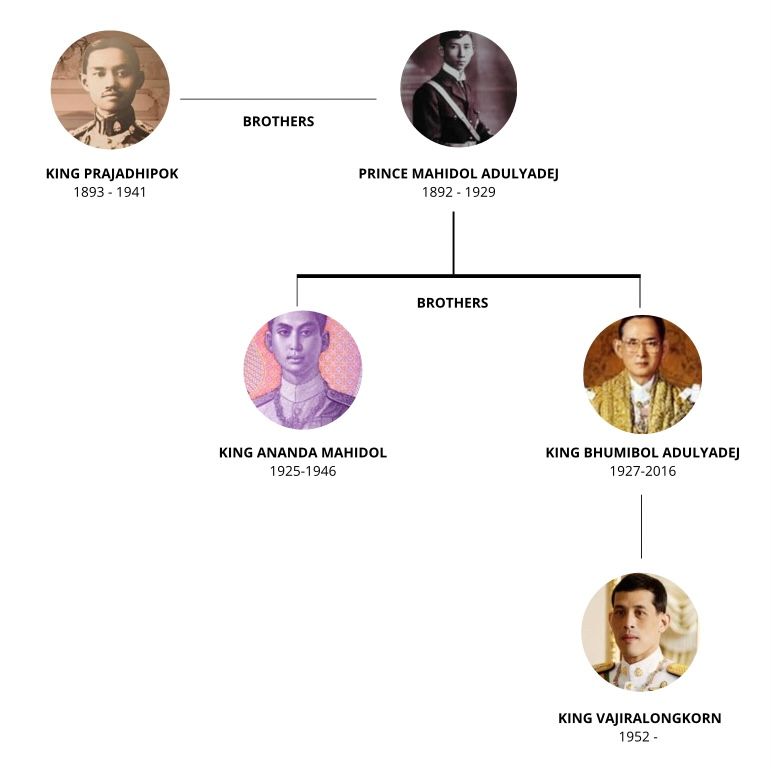
KING ANANDA
A young King Ananda spent the majority of the first decade of his reign being educated in Switzerland, returning to Thailand in 1945 at the age of 20.
However, his rule abruptly ended after just six months.
In June 1946, he was found dead in his bed in the Grand Palace, from a single gunshot wound to the head.
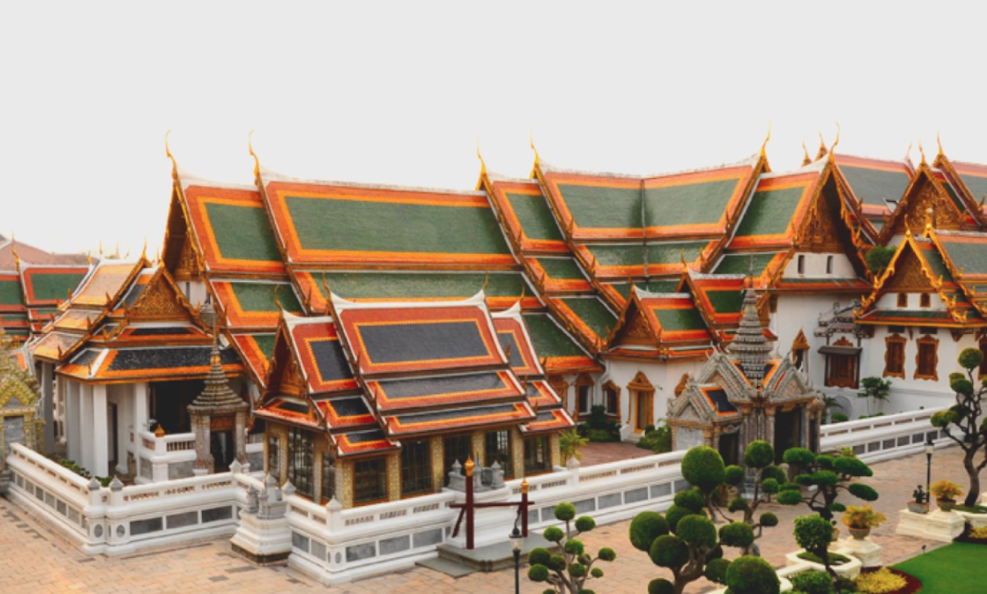
An investigation into his death was conducted by Keith Simpson CBE - a pathologist renowned for conducting post-mortems in high-profile murder cases.
The investigation into King Ananda was Simpson’s first outside of the UK, and he published a detailed account of it in his 1978 autobiography. Below is his account of the sequence of events on that morning;
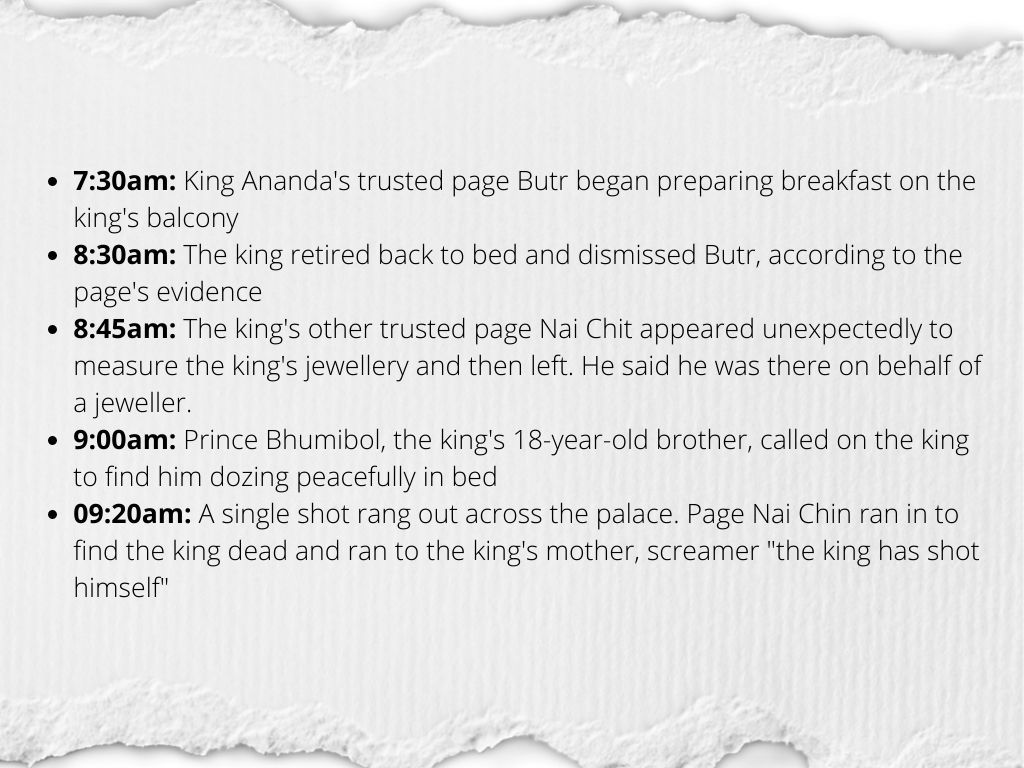
THE MYSTERY BEGINS
Before police arrived, the scene was "tidied" and no photos could be taken, rendering the bedroom of little investigative value, according to Simpson's autobiography.
In lieu of this, pathologist Simpson received a detailed description of the scene of the king's death from the Major General of the Thai police;
“Ananda lay in bed within a mosquito netting, his body covered but the arms lying outside the coverlet alongside the body. Close to his left hand was an American Army .45 Colt Automatic pistol, and above the left eye was a single bullet wound.” - The Major General of the Thai police at the time
Just twelve hours after his death Ananda's brother, Prince Bhumibol, became king. Yet to this day, the circumstances around King Ananda's sudden death remain somewhat of a mystery - was it an accident, suicide or murder?
The initial explanation put forward by the Thai government was that it was an accident.
An Associated Press article from the time described how young King Ananda “always kept a weapon near him and often practiced firing in the palace grounds” - it was not inconceivable that his death may have been a tragic accident.
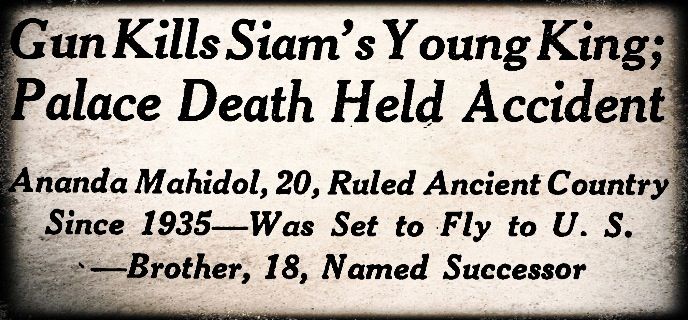
QUESTIONS RAISED
However, in the days following his death newspaper headlines around the world speculated on whether or not Ananda might have taken his own life.
Smithsonian magazine referred to the break-up of a relationship with a Swiss woman, with rumours he had been "despondent" in the wake of the split.
Others suggested he had been "quarrelling" with his mother, but the notion of suicide was vehemently refuted by authorities.
It was also noted the gun had been found in the king’s weaker left hand and despite being partially blind, he was not wearing his glasses. It was beginning to appear most likely that the king’s death was a murder.
THE INVESTIGATION
The Thai government faced increasing public pressure to find answers and launched an inquiry made up of 15 medical experts.
It took the physicians less than a month to complete their investigation - and they concluded King Ananda’s death was, indeed, “absolutely murder”.
Pathologist Simpson agreed - finding that accidental death and suicide were highly improbable - and in his report described it as a “deliberate killing by firearm”.
Who was blamed?
The King’s secretary Chaleo Patoomros and his two pages, Butr and Nai Chit -who both visited the king's bedroom that morning - were arrested, and a lengthy trial ensued.
However, after more than seven years there was a stalemate - the courts would not convict the suspects due to a lack of evidence.
A notoriously corrupt director of the Thai police named General Phao of the Siamese Army, however, continued to push for a guilty verdict in order to provide closure.
Controversially, he pushed through a guilty conviction in 1954.
All three were executed for conspiracy to murder in 1955 after more than six years in custody, and despite a number of questions left unanswered.
ALTERNATIVE THEORIES
In a rare interview in 1980, King Bhumibol spoke about the death of his brother. He confirmed he believed the death was "not an accident or suicide," adding it was "very mysterious because... the evidence was just shifted".
King Bhumibol went on to say he believed the murder was "political," with the truth about what happened "oppressed by influential people in this country or in the international politics".
Some, however, have put forward a theory - despite a lack of evidence - that King Bhumibol himself may have been responsible for the death of his older brother.
However, historical journalist Toy Lennon said the brothers were "very close" and it was "impossible to imagine" Bhumibol could be responsible.
Okay, so where did that speculation come from?
Lord Louis Mountbatten - an uncle of Prince Philip - is believed to have floated the theory in a letter to King George VI - Queen Elizabeth's father.
In the 1999 book 'The Revolutionary King,' William Stevenson writes about it, saying Mountbatten speculated "King Bhumibol shot his brother to obtain the crown".
While it certainly makes for an 'interesting' theory, no evidence to support this accusation has emerged.
An alternative theory suggested by Stevenson is that a notorious Japanese spy, Masanobu Tsuji, may have been responsible for the King's death.
At the time of Ananda’s death Tsuji was reportedly in Thailand and in hiding from prosecution for war crimes.
Interestingly, Stevenson’s biography of King Ananda was written with the cooperation of the late-king’s brother, King Bhumibol.
To a great extent, the circumstances surrounding King Ananda’s death remain a mystery.
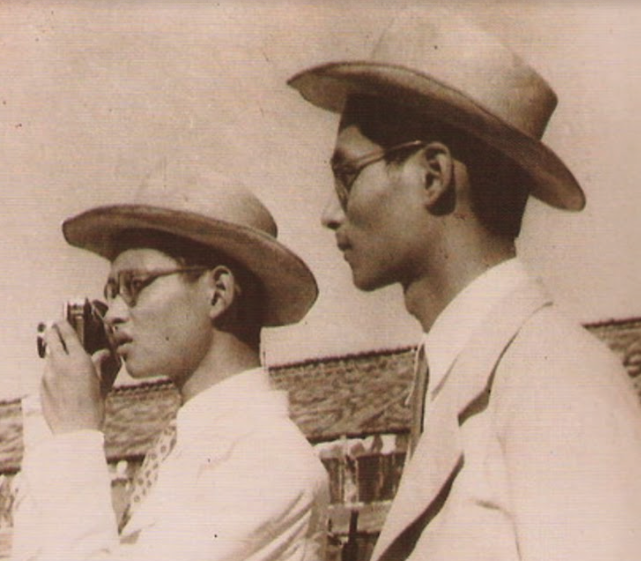
Find this piece interesting? We'll have a #DeepDive every Saturday, exploring a mixture of fascinating historical events, topical issues and contentious debates.
Spread the word, and let's grow this community together ✌🏽
